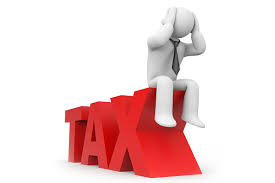There are 4 small business concessions available to help offset capital gains made by small business but only if 3 basic conditions are satisfied.
The concessions are:
- The 15-year exemption
- The 50% reduction
- The retirement concession
- The roll-over
The 3 basic requirements a business must meet to qualify for any of these concessions are:
- The entity must be a small business entity with net assets of less than $6 million or with a turnover of less than $2 million in the previous or current year. Even though the turnover threshold has increased to $10 million for a small business, this threshold increase does not apply to CGT concessions.
- The asset must be an active asset. An active asset can be either tangible or intangible. The asset will be an active asset if it is used or ready to be used in the course of carrying out the business (tangible), or if it is connected with the business e.g. goodwill (intangible).
- If the asset is a share or interest in a trust, there must be a CGT concession stakeholder (a significant individual) just before the CGT event, and the entity claiming the concession must be a CGT stakeholder in the company or trust.
The 15-year exemption
The 15-year concession provides a total exemption for any capital gain on the disposal asset owned for at least 15 years where the taxpayer is 55 years or older and is either retiring or permanently incapacitated.
If this exemption applies, you do not need to consider the other exemptions as this exemption takes priority.
50% Reduction
The 50% reduction allows a qualifying taxpayer to reduce their capital gain by 50% after the taxpayer has already been reduced by the general 50% discount giving the taxpayer a total exemption on 75%. After the 50% reduction exemption has been applied, the taxpayer may be eligible for the small business retirement exemption or the small business rollover.
You are eligible for the 50% reduction if you satisfy the basic requirements.
Retirement Concession
A taxpayer may choose to disregard a capital gain of an asset connected with a small business if it is in relation with the taxpayer’s retirement. If the taxpayer is under 55 then the gain proceeds must be deposited into a superannuation fund, approved deposit fund or a retirement savings account. If the taxpayer is over 55 then the concession is automatically available and does not have to be put into a complying superannuation fund etc.
Rollover Relief
If a taxpayer chooses a rollover, all or part of the capital gain is not included in the taxpayer’s assessable income until circumstances change. A taxpayer may defer paying tax on a capital gain made from a CGT even in relation to a small business if the taxpayer acquires a replacement active
asset or elects to obtain a rollover.
Replacement business assets must be acquired within the period starting one year before and ending two years after the happening of the last CGT event in the income year for which the rollover concession is claimed.
Author
Sheridan Wilson




